Referral Relationships Are as Important—and Scrutinized—as Ever
Law firms are going beyond the schmooze to study what comes of referral relationships and act accordingly.
May 22, 2019 at 09:08 AM
11 minute read
 Credit: Phil Foster
Credit: Phil Foster
There's no doubt business development in the law is about relationships, but when it comes to the time and marketing money used to build out referral networks, law firms want to know whether that meeting over cocktails will turn into meaningful work or just a hangover.
Whether it's creating a database that reviews their experiences with other firms' lawyers or more closely tracking which referrals lead to which type of work, law firms are investing in the infrastructure needed to vet and monitor incoming and outgoing referrals. And what they are finding is causing a shift in the relationships they prioritize.
 How does your firm's performance compare to peers & competitors? Get the Am Law 200 Data exclusively with Legal Compass.
How does your firm's performance compare to peers & competitors? Get the Am Law 200 Data exclusively with Legal Compass. 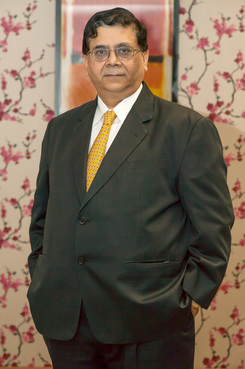 Cyril Shroff of Cyril Amarchand Mangaldas
Cyril Shroff of Cyril Amarchand MangaldasCyril Shroff, managing partner of one of India's largest law firms, Cyril Amarchand Mangaldas, spends 20 days each month traveling around the world, from New York to London and Singapore to Hong Kong. Much of his time outside of his home base of Mumbai is spent meeting with law firms that may seek his firm's guidance when representing clients in the closed market of India.
Shroff formed an international business development team with the sole purpose of tracking law firm relationships, measuring referrals and making sure, as he puts it, "the connections are kept warm."
Law firms invest a lot of money in meeting with other firms, so tracking the fruits of that labor makes sense, Shroff and others say. The main drivers for tracking the work are to better institutionalize referral relationships and to ensure, on a firm-by-firm basis, that there are roughly as many referrals coming in as there are going out.
What Shroff's team found when it finally looked at the data was revealing. The firms Cyril Amarchand spent the most time networking with didn't always match up to its referrals.
"Now we know who to spend time with," Shroff says. "It's all about relationships. In many cases, we referred much more than we received in referrals. And this becomes a good basis for a conversation. The Indian market is one of the biggest opportunities in the world, and everyone wants a piece of it."
For Shroff, who leads an independent firm with offices only in India, referrals are a key part of his business model.
Whether they track referrals as closely or not, other independent firms agree. Charles Martin, senior partner at U.K.-based Macfarlanes, says the independent firm market is dependent on relationships and "a high level of trust" between individuals and firms.
"This is not a quirky little backwater of the industry," he says.
But Martin's firm doesn't spend too much time tracking the relationships.
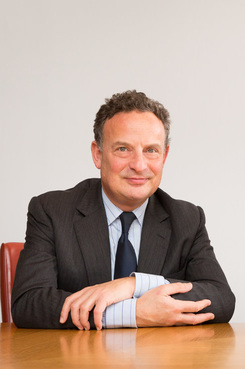 Charles Martin of Macfarlanes
Charles Martin of Macfarlanes"We keep a modest track of how things are going, but it's certainly not a tit-for-tat arrangement," Martin says. "We will send work where we think it is right to send it and won't necessarily be in a position to reciprocate when firms send us work."
Shroff has seen global firms place a bigger emphasis on tracking referrals as well. Staff are assigned countries in which to manage relationships, lawyers say, keeping tabs on how much of what type of work is sent where.
Herbert Smith Freehills is one such institution. Nearly two years ago, it reviewed the way its referrals work around the world and started to closely monitor work coming in and going out. Ian Cox, the firm's executive partner for the U.K., Europe, the Middle East and Africa, says the firm has grown more sophisticated in how it tracks referral information. "There is far more qualitative assessment of the firms we work with now," he says, including categorizing regions by their importance, having partners responsible for each referral relationship and keeping them constantly under review.
Cox says the monitoring isn't meant to be a "zero-sum game financially," and the firm wouldn't change a referral firm depending on work coming back, even if that's the hope. "The reason we refer work is for the benefit of our clients, not our benefit," Cox says. The changes firms are making, Cox says, are driven by the need to demonstrate that they can handle work in any jurisdiction. Herbert Smith Freehills says it has offices in 23 countries but referral relationships spanning an additional 150.
"If you want to claim you are a global law firm, then there are different models to do that," Cox says. "Firms like ours are all chasing big global clients, so we are required to provide that service."
Allen & Overy seems to have adopted a similar approach. The Magic Circle giant may already have more than 2,000 lawyers across 31 countries, but it says it has also developed a referral network that involves 450 law firms spanning an additional 153 countries. There are only 11 countries the network doesn't cover, all with little demand for legal advice, such as Tonga and North Korea. The firm says it refers 140 transactions each month, on average, amounting to more than 1,600 outbound referrals last year.
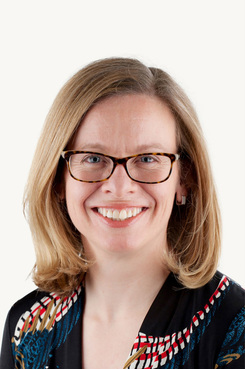 Cathy Bell-Walker of Allen & Overy
Cathy Bell-Walker of Allen & Overy"What you don't want is a disorganized bunch of people flying off to somewhere like India and not coordinating efforts," says Cathy Bell-Walker, a finance partner at Allen & Overy, who oversees the firm's referral network. "In the past, general counsel have wanted to hold relationships themselves, but now they are seeing huge efficiency gains in getting a service as a package."
Global firms Baker McKenzie and Dentons have similarly looked to put structure around their referral processes. Last year, Baker McKenzie set out new terms and conditions to the firms it sometimes refers, all in an effort to achieve "consistency of policy around working with other firms," a spokesperson says.
In October 2016, Dentons launched NextLaw Referral Network, which vets law firm entrants from around the world. With more than 500 members, the network provides a framework for referrals among firms, whether Dentons is one of them or not.
'A Precious Moment'
For some firms, referrals are lifeblood. No firm better exemplifies that than Kobre & Kim, whose conflict-free policy means it takes no repeat clients.
Gary Singer, chief strategy officer at the New York disputes boutique, says that prior to joining Kobre & Kim his experience of referrals was based on one-to-one relationships.
"At Kobre & Kim, we institutionalize that," he says. "Every request for a referral is logged into a system and is processed centrally. I have a full-time staff of people who do nothing but manage our referral process."
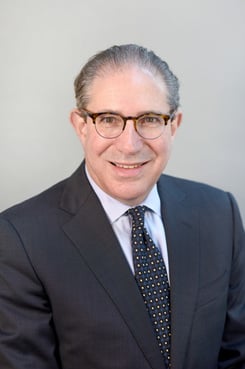 Gary Singer of Kobre & Kim
Gary Singer of Kobre & KimAnyone at the firm who gets a call about a referral begins a process that will carefully select the best people to deal with it. A senior member of the firm makes the final decision, and a response is sent back within 24 hours. One team handles referrals to the firm, another handles requests for a recommendation, and they cross-reference one another. Requests, outcomes, size and more are recorded in detail.
"It was one of my biggest surprises when I got to the firm," Singer says. "The reason we do that is because every contact with a potential referrer is a precious moment for us."
The firm's goal, he says, is to make sure as many people as possible know about its unique capabilities and call on the firm as they need it. Singer says no single referral source accounts for a significant amount of the firm's work.
And, like Shroff, Singer says his firm looks closely at how firms are reciprocating, focusing its marketing efforts on those firms that aren't repeatedly sending it work. The firm is already top of mind for those giving it referrals, he points out.
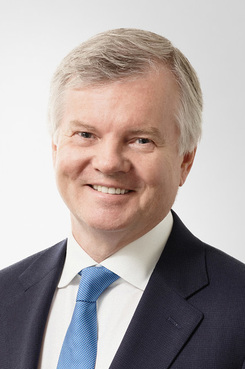 Shawn McReynolds of Davies Ward
Shawn McReynolds of Davies WardMonitoring inbound referrals is easy enough, but keeping track of outbound referrals is a separate challenge. Shawn McReynolds, managing partner at Canadian firm Davies Ward Phillips & Vineberg, says all he can know about an outbound referral is that someone in his firm gave the name of another lawyer. Rarely does he know if that referral turned into a phone call, let alone an engagement. This makes it difficult to balance out the flow of work, which some firms make no attempt to do.
For example, Wachtell, Lipton, Rosen & Katz corporate partner Adam O. Emmerich says the firm has "fabulous relationships" with Slaughter and May and Macfarlanes in the U.K., but he dismisses the idea of monitoring referrals.
"We make it a priority to have strong ongoing relationships with people we consider the best practitioners around the world," he says. "It's a friendship. We are not keeping track of referrals."
An 'Unforgivable Sin'
Reciprocity isn't the only reason to track referrals. In fact, the paramount reason is to ensure clients are getting the best lawyers possible. A firm's reputation is at risk if it refers a client to a bad experience.
Some firms have learned that lesson the hard way. McReynolds recalls sending a client to a prominent European firm where he was treated poorly. The client complained to McReynolds' firm.
"It was mortifying to us," McReynolds says. "It was a huge embarrassment to us that we recommended someone who did a poor job. It's an almost unforgivable sin." On a separate occasion, McReynolds says, his firm approached a respected partner at what he calls a "No. 1 firm" with a matter but didn't get the response it was looking for.
"The guy completely ghosted us and was unresponsive," he explains, adding that it was a time-sensitive matter and the poor service meant his firm had to go elsewhere. Davies no longer refers work to that firm.
Davies now has an internal system to pool information and experiences on referral relationships. McReynolds describes it as a Yelp-style review system that allows any of the firm's attorneys to describe their experience with other law firms, with both the practice and the business relationship in mind.
Independent U.K. firm Travers Smith has found another way to ensure it deeply understands the firms it refers work to and vice versa.
Travers tracks where all its work comes from, particularly in the United States, where 70 percent of its inbound referrals originate. It has a team of partners who visit U.S. firms almost monthly, and relationships with elite New York firms including Paul, Weiss, Rifkind, Wharton & Garrison; Cravath, Swaine & Moore; Wachtell; Simpson Thacher & Bartlett; and Skadden, Arps, Slate, Meagher & Flom, as well as with the likes of Holland & Knight, Perkins Coie, Loeb & Loeb and Foley & Lardner.
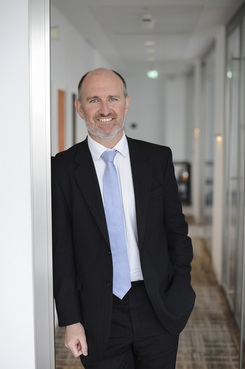 Andrew Gillen of Travers Smith
Andrew Gillen of Travers SmithAndrew Gillen, a corporate partner at the firm, says Travers attempts to build stronger relationships by having associate secondee arrangements with such firms. The idea is to match associates' opportunities for movement and relationship-building within global firms.
"If we sent a significant piece of work to any firm, there always is a hope that firm would reciprocate, but the primary aim is to get the best advice for our clients," Gillen says. Those relationships are important, he says, because "you need to know they are going to look after your client. Sometimes it's a one-off thing, but the firm we deal with knows that how they do that work will affect our relationship with the client."
For the amount of work that goes into tracking referral relationships, the fear of disappointing the client remains the biggest motivator.
"We're not going to push a client anywhere for anything, if we think there is any risk of leading to an unpleasant conversation with our client," McReynolds says. "I may love you as an individual, and as a human and as a dinner companion, but if I don't think you are the best lawyer for my client in their situation, I'm not sending them there."
Email: [email protected] and [email protected]
This content has been archived. It is available through our partners, LexisNexis® and Bloomberg Law.
To view this content, please continue to their sites.
Not a Lexis Subscriber?
Subscribe Now
Not a Bloomberg Law Subscriber?
Subscribe Now
NOT FOR REPRINT
© 2025 ALM Global, LLC, All Rights Reserved. Request academic re-use from www.copyright.com. All other uses, submit a request to [email protected]. For more information visit Asset & Logo Licensing.
You Might Like
View All

Three Akin Sports Lawyers Jump to Employment Firm Littler Mendelson

Brownstein Adds Former Interior Secretary, Offering 'Strategic Counsel' During New Trump Term
2 minute read
Trending Stories
- 1How ‘Bilateral Tapping’ Can Help with Stress and Anxiety
- 2How Law Firms Can Make Business Services a Performance Champion
- 3'Digital Mindset': Hogan Lovells' New Global Managing Partner for Digitalization
- 4Silk Road Founder Ross Ulbricht Has New York Sentence Pardoned by Trump
- 5Settlement Allows Spouses of U.S. Citizens to Reopen Removal Proceedings
Who Got The Work
J. Brugh Lower of Gibbons has entered an appearance for industrial equipment supplier Devco Corporation in a pending trademark infringement lawsuit. The suit, accusing the defendant of selling knock-off Graco products, was filed Dec. 18 in New Jersey District Court by Rivkin Radler on behalf of Graco Inc. and Graco Minnesota. The case, assigned to U.S. District Judge Zahid N. Quraishi, is 3:24-cv-11294, Graco Inc. et al v. Devco Corporation.
Who Got The Work
Rebecca Maller-Stein and Kent A. Yalowitz of Arnold & Porter Kaye Scholer have entered their appearances for Hanaco Venture Capital and its executives, Lior Prosor and David Frankel, in a pending securities lawsuit. The action, filed on Dec. 24 in New York Southern District Court by Zell, Aron & Co. on behalf of Goldeneye Advisors, accuses the defendants of negligently and fraudulently managing the plaintiff's $1 million investment. The case, assigned to U.S. District Judge Vernon S. Broderick, is 1:24-cv-09918, Goldeneye Advisors, LLC v. Hanaco Venture Capital, Ltd. et al.
Who Got The Work
Attorneys from A&O Shearman has stepped in as defense counsel for Toronto-Dominion Bank and other defendants in a pending securities class action. The suit, filed Dec. 11 in New York Southern District Court by Bleichmar Fonti & Auld, accuses the defendants of concealing the bank's 'pervasive' deficiencies in regards to its compliance with the Bank Secrecy Act and the quality of its anti-money laundering controls. The case, assigned to U.S. District Judge Arun Subramanian, is 1:24-cv-09445, Gonzalez v. The Toronto-Dominion Bank et al.
Who Got The Work
Crown Castle International, a Pennsylvania company providing shared communications infrastructure, has turned to Luke D. Wolf of Gordon Rees Scully Mansukhani to fend off a pending breach-of-contract lawsuit. The court action, filed Nov. 25 in Michigan Eastern District Court by Hooper Hathaway PC on behalf of The Town Residences LLC, accuses Crown Castle of failing to transfer approximately $30,000 in utility payments from T-Mobile in breach of a roof-top lease and assignment agreement. The case, assigned to U.S. District Judge Susan K. Declercq, is 2:24-cv-13131, The Town Residences LLC v. T-Mobile US, Inc. et al.
Who Got The Work
Wilfred P. Coronato and Daniel M. Schwartz of McCarter & English have stepped in as defense counsel to Electrolux Home Products Inc. in a pending product liability lawsuit. The court action, filed Nov. 26 in New York Eastern District Court by Poulos Lopiccolo PC and Nagel Rice LLP on behalf of David Stern, alleges that the defendant's refrigerators’ drawers and shelving repeatedly break and fall apart within months after purchase. The case, assigned to U.S. District Judge Joan M. Azrack, is 2:24-cv-08204, Stern v. Electrolux Home Products, Inc.
Featured Firms
Law Offices of Gary Martin Hays & Associates, P.C.
(470) 294-1674
Law Offices of Mark E. Salomone
(857) 444-6468
Smith & Hassler
(713) 739-1250









